- News
- Guest-Blog-Ventoux
Guest Blog - Ventoux

Ventoux is the most fearsome mountain encountered on the Tour de France. It is also the site of the drug-fuelled race between Lance Armstrong and Marco Pantani that took place in 2000 – the greatest race that cycling had ever seen. 2Magpies director Tom Barnes spoke to journalist and sports enthusiast Peter Cordwell about restaging the race, and what it means to win.
PC This could seem an unusual subject for a play. Are you and fellow 2Magpies director Alex Gatehouse both cyclists, or just big cycling fans captured by the story of these two characters and the amazing Ventoux Tour de France stage 12 in 2000?
TB Both! Alex is a lifelong cyclist and races on the track at Herne Hill Velodrome, and I got into cycling around 2012 when Bradley Wiggins won the Tour de France. As I looked back into previous tours – the Armstrong / Pantani battle was fascinating given the backdrop of what was happening to Lance in 2012, and his fall from grace. For this tour Marco Pantani is played by Matthew Seager, who’s luckily also a big Tour de France fan!
PC How exactly did you write the show with Alex? Was there a central theme or approach that governed the writing?
TB We devised it with Andy Routledge, who originally played Lance Armstrong and is now directing the remount. The show is 60 minutes in duration, the same as the ascending of the mountain by Armstrong and Pantani in 2000. We mapped the timelines of Armstrong and Pantani’s careers, and saw how similar they were. They both overcome enormous adversity earlier in their careers to recover and win the Tour de France. Their parallel lives diverged after this stage. We mapped those timelines on to the mountains, and it fit quite nicely. Doping was a pivotal theme, and the way these two different personalities dealt with that.
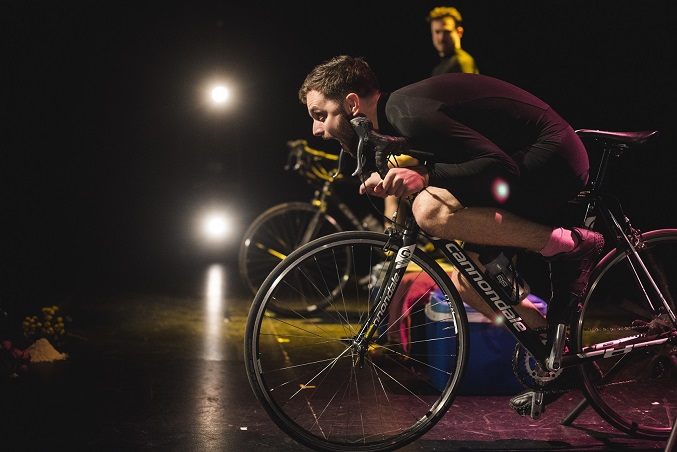
PC Where do you stand as individuals on the issue of winning at all costs, including cheating, in sport (“winning ugly” and “taking one for the team” have become perfectly acceptable in professional football) and how are your own opinions reflected in Ventoux? Or are you just telling an amazing story?
TB It’s really hard. Lance Armstrong is so unlikeable that it’s sometimes difficult to feel sorry for him. But then sometimes you do. It’s interesting with Team Sky at the moment and the way they are perceived to have ‘bought’ the Tour de France through their complex and scientific approach. Is that any worse than biological doping? Some might say not!
PC In such a complex scenario, basically winning by cheating, what overall point are you trying to get across in Ventoux? Presumably empathy plays a part for both characters, but how do you bring it in?
TB To some extent, Armstrong and Pantani committed the same ‘crime’ of doping. Pantani is regarded as a hero and Armstrong as a villain today. The show tries to pull apart why that is. It makes us question why one was worse than the other. Some might not think it was that different, and some will have very strong opinions. The show is about what it means to be a hero, and what it means to be a villain. It’s interesting that everyone has a different opinion!
PC In another article you mention Maradona and Gascoigne, who arguably have both ended up as pitiful characters. Does your show include anything on Lance Armstrong since his admissions in 2013?
TB I think Maradona and Gascoigne are more like Pantani! Fundamentally flawed, highly talented individuals that were partial to excessive lifestyles. Pantani and Maradona were actually friends, which somehow makes a lot of sense… The show does include the way Armstrong handled everything from 2013. He had a way of trying to control the narrative – something that translates well onto the theatrical narrative…
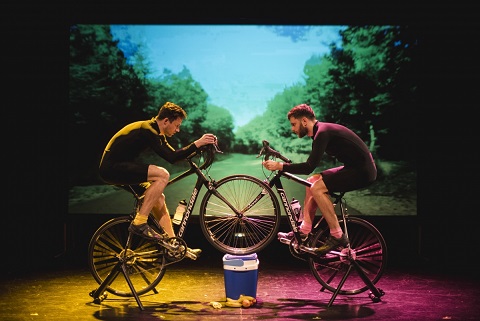
PC A cyclist friend of mine idolised Armstrong and would still sand up for him, I think. How do you think audiences will feel after Ventoux?
TB Some people do! It’s very complex, particularly for cancer survivors, or people close to them – since Armstrong did a lot for cancer research, awareness etc. What he achieved was incredible, to overcome cancer and win 7 consecutive tours is unprecedented, and very unlikely to be repeated. I think we’re relatively sympathetic in the show. We’re aware of the opinions that audiences will bring into the room at the start of the show, and in offering different interpretations, there’s a lot of room to re-assess those opinions – for better or worse! The show leaves a lot of space for audiences to make up their own minds.
Ventoux plays on 29 November for one special performance. Book your tickets [here].

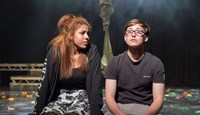


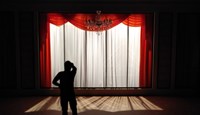

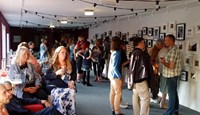
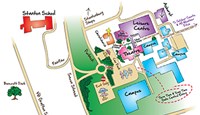
Conversations